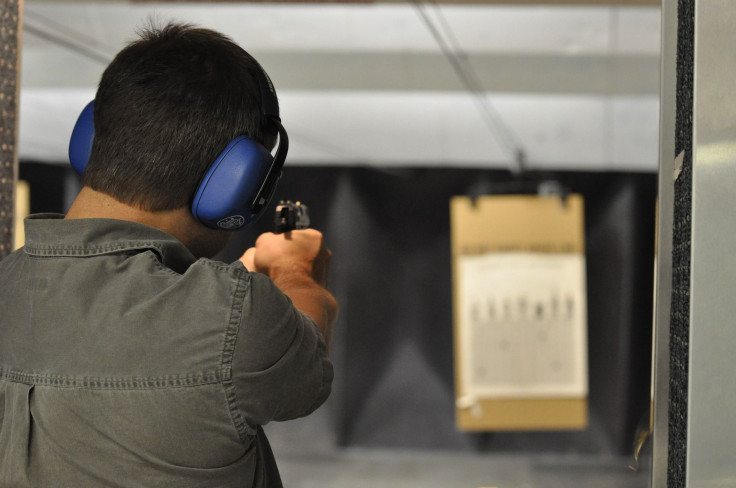Study: Waiting Periods For Firearm Purchases Can Reduce Gun Deaths

Debates about gun control laws have been front and center in the United States since Stephen Paddock opened fire on concertgoers at a music festival in Las Vegas on Oct. 1, killing 58 people and injuring hundreds more. It was the deadliest mass shooting in the country’s history, but it’s just one way people die by gunshots. One group of researchers says gun deaths could be reduced if owners had to wait a few days between when they buy one of these weapons and when they actually take possession of them.
A study that was just published in the journal Proceedings of the National Academy of Sciences estimates that there would be 910 fewer gun homicides every year if this sort of waiting period, which has already been enacted in several states, were to be expanded to the rest of the country. That’s “without imposing any restrictions on who can own a gun,” a contentious point in the debate on gun control legislation.
The Centers for Disease Control and Prevention put the number of firearm-related deaths in 2014, the most recent year for its data, at almost 33,600 and, within that statistic, the number of firearm-related homicides at a little more than 11,000. The remainder of those gun deaths were suicides.
Those gun homicides represented close to 70 percent of all homicides that year.
There were also, of course, non-fatal firearm incidents. While the U.S. National Institute of Justice notes that non-fatal gun violence has greatly decreased in recent years — after a peak of more than 1.5 million gun violence victims, many of them linked to gang violence and felonies in 1993 — there are still hundreds of thousands of incidents every year. Gun violence hit a low in 2008, when there were only about 330,000 firearm incidents, compared to a population of more than 304 million people.
According to the researchers, having a waiting period between when people buy a gun and when they receive it creates time for people to reflect upon their plans, which is what helps reduce the gun-related violence.
“We show that waiting periods, which create a ‘cooling off’ period among buyers, significantly reduce the incidence of gun violence,” the study says. “One avenue for reducing gun deaths is to draw on insights from behavioral economics and psychology, which suggest that delaying gun purchases, even for a short time, might be an effective policy tool. Visceral factors, such as anger or suicidal impulses, can spur people to inflict harm on others or themselves, but tend to be transitory states.”
The waiting period can be as little as a couple of days or as long as a week.
The researchers went back through 45 years of data to explore the differences in gun deaths and see how mandatory waiting periods affected those numbers.
“We find that waiting periods cause large and statistically significant reductions in homicides,” they wrote.
Their data showed a 17 percent decrease in gun-related homicides that was connected to waiting periods being enacted in 16 states and Washington, D.C., by 2014. Those areas saw a reduction of about 750 gun homicides, the researchers say, and there would be another 910 deaths avoided if all states enacted waiting periods.
© Copyright IBTimes 2024. All rights reserved.




















